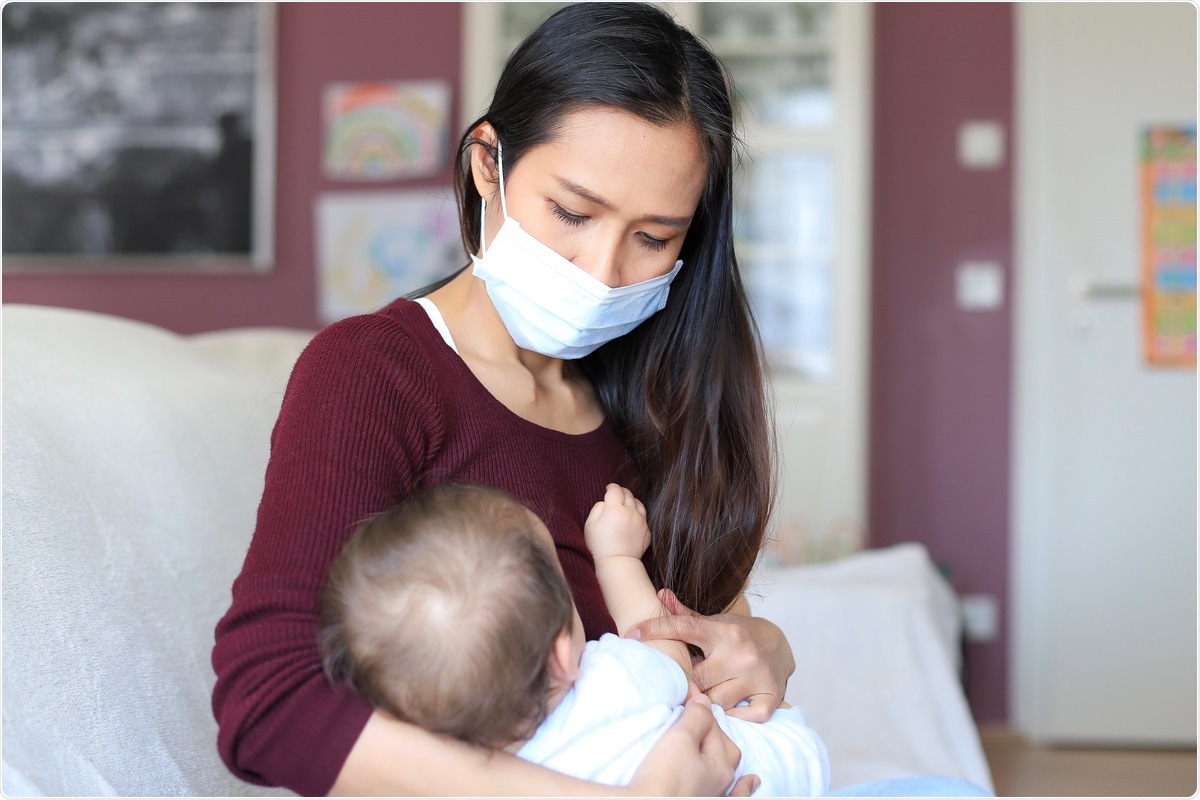In December 2020, two novel messenger RNA (mRNA) vaccines received emergency approval for use from the U.S. Food and Drug Administration among people over 16 years of age against the severe acute respiratory syndrome coronavirus-2 (SARS-CoV-2); however, the data used for the emergency approval of vaccines from clinical trials excluded those that included data from lactating women.
 Study: Maternal and Child Outcomes Reported by Breastfeeding Women Following Messenger RNA COVID-19 Vaccination. Image Credit: Onjira Leibe/ Shutterstock
Study: Maternal and Child Outcomes Reported by Breastfeeding Women Following Messenger RNA COVID-19 Vaccination. Image Credit: Onjira Leibe/ Shutterstock
Of a small sample size of 31 breastfeeding women receiving an mRNA vaccine, >60% reported vaccine-related side effects. However, there was no data provided on infant outcomes or milk supply. Another small study of 84 breastfeeding women from Israel reported similar frequencies of vaccine-related symptoms following their first and second doses of the Pfizer-BioNTech vaccine (55% and 61%, respectively). Although the study did not report any serious adverse events in the infants, four infants were reported to have fever and symptoms of upper respiratory infections during the study period post-vaccination.
Globally, around 84% of infants fed on breastmilk at least once in their lifetime (as per data from the CDC data in 2019-2020); considering such a scenario, lactating mothers comprise a large part of the population pool which needs to be covered by vaccination. To evaluate the effect of vaccination in breastfeeding women and its possible effects in infants, researchers from the University of California, San Diego, published a study in Breastfeeding Medicine involving 180 fully vaccinated, breastfeeding women.
How did the breastfeeding women and newborn children react to mRNA vaccines?
Researchers included 180 breastfeeding women residing in the United States who received both doses of either of the two mRNA vaccines enrolled in the Mommy's Milk Human Milk Research Biorepository at the University of California, San Diego, between December 14, 2020, to February 1, 2021.
Similar proportions of women reported one or more symptoms following vaccination with either of the two mRNA vaccines. Even the frequencies of side-effects due to the specific vaccine did not differ. However, following the second dose of vaccine, women who received the Moderna vaccine were significantly more likely to report symptoms.
The symptoms were recorded after an observation period of seven days post each dose. They included localized symptoms like pain, redness, swelling, and itching at the injection site and systemic ones like chills, muscle/body aches, fever, and vomiting. These were more common post the second dose, more so for the Moderna vaccine recipients.
A small proportion of women following vaccination with the first dose of either vaccine reported a reduction in milk supply. Still, significantly more women reported a reduction in milk supply following the second dose of Moderna. However, the supply was restored within 72 hours of receiving the vaccine without any external intervention in all cases. A few side-effects events were reported among infants for either vaccine following either dose, but no serious adverse events were reported.
What are the implications of the study?
The study showed that more than 85% of 180 breastfeeding women who received an mRNA COVID-19 vaccine reported local or systemic symptoms, with the higher frequency following the second dose. The infants were also not affected by any severe side effects.
The data obtained from the study show that mRNA vaccines were safe for inoculating breastfeeding women and their breastfed children for both vaccines. Vaccinating breastfeeding women would ensure a major part of the population is vaccinated, thus helping in reducing the spread of the virus.